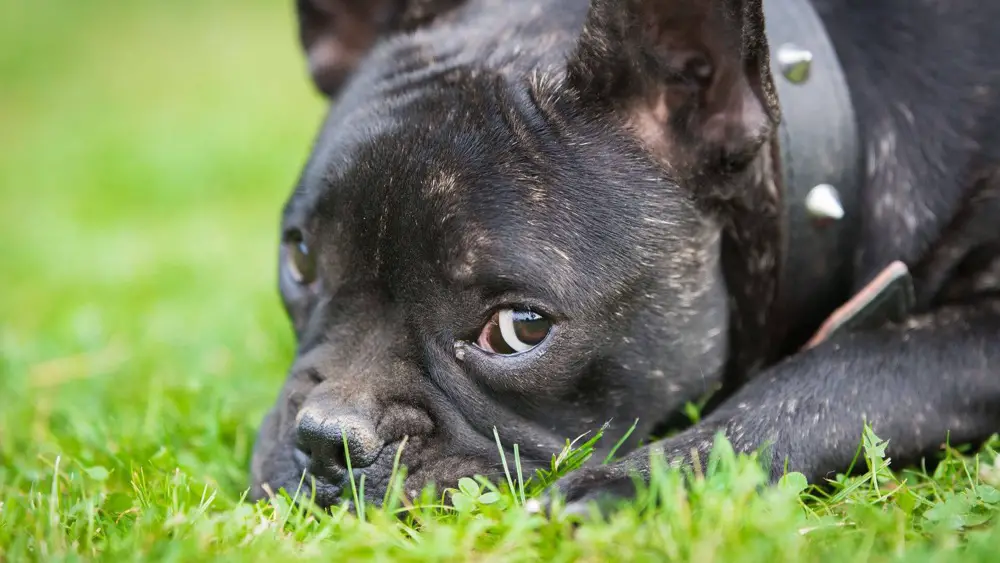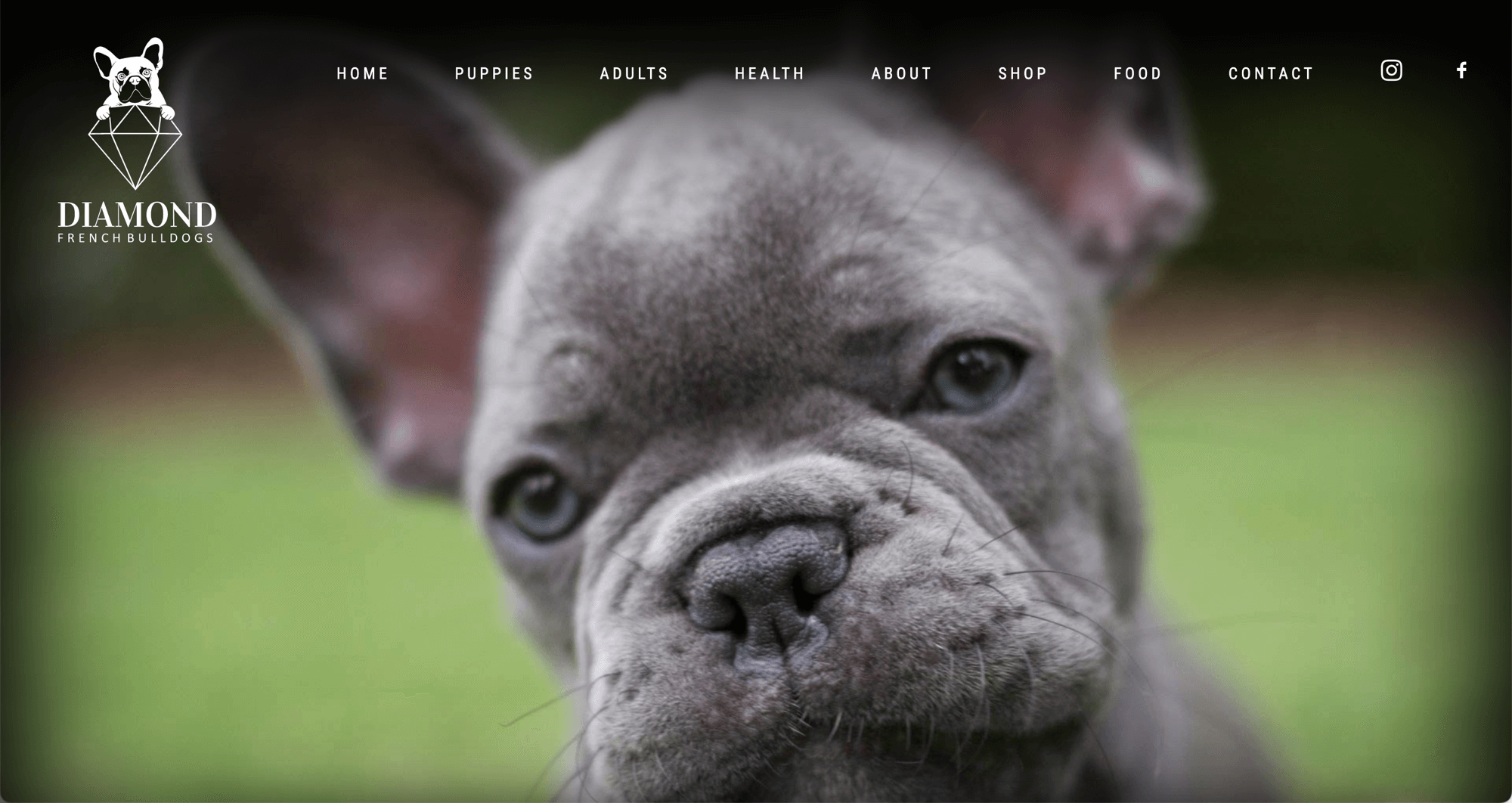
French Bulldogs, or “Frenchies,” are a beloved breed known for their loyalty, affectionate nature, and distinctive appearance. As a breeder, it is important to understand the intricacies of breeding these dogs to ensure their health and the health of their offspring. In this guide, we will cover everything you need to know about breeding French Bulldogs.
French Bulldog Breeding Basics
Before diving into the specifics of breeding Frenchies, it is important to understand the basics of breeding any dog. Breeding should only occur between healthy, genetically sound dogs that meet breed standards. It is recommended to have both dogs undergo genetic testing to ensure they do not carry any hereditary diseases or conditions that could be passed on to their offspring.
The breeding process should be carefully planned and monitored to ensure the health and safety of both the dam (female) and sire (male). The dam should be in good health and at an appropriate age for breeding, typically between 2 and 5 years old. The sire should also be in good health and meet breed standards.
The gestation period for French Bulldogs is between 58 and 68 days, with the average pregnancy lasting 63 days. During this time, the dam should be closely monitored for any signs of distress or complications.
Breeding French Bulldogs
Breeding French Bulldogs can be a complex process due to their unique anatomy and health concerns. Frenchies are a brachycephalic breed, meaning they have a shortened skull and flat face. This can lead to breathing difficulties and other health issues, making it important to carefully select breeding pairs and monitor the health of the dam and sire throughout the breeding process.
When selecting breeding pairs, it is important to consider the health and temperament of both dogs. Frenchies are prone to certain health issues such as hip dysplasia, allergies, and skin conditions, so it is important to choose dogs that have been genetically tested and cleared of these conditions.
It is also important to consider the temperament of both dogs. Frenchies are known for their affectionate, playful nature, so it is important to choose dogs that exhibit these traits. Aggressive or overly timid dogs should not be bred.
Breeding Frenchies can also be complicated by their unique reproductive system. Frenchies have a high rate of artificial insemination due to their small size and difficulty with natural breeding. It is important to work with a veterinarian experienced in French Bulldog breeding to ensure the process goes smoothly.
Breeding French Bulldogs Isn’t For Everyone
While breeding French Bulldogs can be a rewarding experience, it is not for everyone. There are several reasons why someone may not want to be a French Bulldog breeder:
- Time commitment: Breeding French Bulldogs requires a significant time commitment. From planning and monitoring the breeding process to caring for the dam and her puppies, breeders must be prepared to devote a great deal of time and energy to the process.
- Financial investment: Breeding French Bulldogs can be expensive, requiring a significant financial investment in genetic testing, veterinary care, and proper nutrition and care for the dam and her puppies.
- Health concerns: Frenchies are prone to certain health issues such as brachycephalic syndrome and hip dysplasia, which can be exacerbated by breeding. Breeders must be prepared to monitor for and address any potential health issues in their dogs and their offspring.
- Responsibility: Breeding French Bulldogs is a serious responsibility that should not be taken lightly. Breeders must prioritize the health and well-being of their dogs and their offspring and work to improve the breed through careful selection and breeding practices.
- Overpopulation: Overbreeding can contribute to the overpopulation of dogs in shelters and lead to an increase in health issues within the breed. Breeders must be responsible and prioritize the health and well-being of the breed as a whole.
While breeding French Bulldogs can be a rewarding experience, it requires a significant time and financial commitment, as well as a strong sense of responsibility and dedication to the health and well-being of the breed. It is important to carefully consider these factors before deciding to become a French Bulldog breeder. It is not for the faint of heart and for people not truly committed to bringing new Frenchie puppies into the world.

Pregnancy
During the pregnancy, the dam should be closely monitored for any signs of distress or complications. Frenchies are prone to certain pregnancy-related issues such as dystocia, or difficulty giving birth, which can be life-threatening for both the dam and her offspring. It is important to work with a veterinarian experienced in French Bulldog breeding to monitor the pregnancy and address any potential issues.
The dam should also receive proper nutrition and care during the pregnancy. It is recommended to switch to a high-quality, nutrient-dense food specifically formulated for pregnant and nursing dogs. The dam may also require additional supplements such as calcium to support the growth and development of her offspring.
As the due date approaches, it is important to prepare a safe and comfortable whelping area for the dam and her puppies. This area should be warm, quiet, and free from any potential hazards. The dam may require assistance during the birthing process, so it is important to have a veterinarian or experienced breeder on hand to provide support if needed.

Raising French Bulldog Puppies
Once the puppies are born, it is important to provide them with proper care and socialization to ensure they grow into healthy, well-adjusted adults. The dam will provide the puppies with milk and care for their basic needs, but it is important to monitor their growth and development to ensure they are thriving.
Puppies should be introduced to a high-quality puppy food at around 3-4 weeks of age. It is important to choose a food specifically formulated for French Bulldog puppies to ensure they receive the proper nutrition for their unique needs.
Socialization is also important during the early weeks of a puppy’s life. Puppies should be exposed to a variety of people, animals, and environments to help them develop into well-adjusted adults. It is important to handle the puppies gently and frequently to help them become comfortable with human interaction.
Health Concerns
French Bulldogs are prone to certain health issues that should be monitored throughout their lives. These include:
- Brachycephalic syndrome: Breathing difficulties due to their shortened skull and flat face.
- Hip dysplasia: A genetic condition that can cause pain and difficulty walking.
- Allergies: Frenchies are prone to skin allergies and food sensitivities.
- Eye problems: Frenchies are prone to certain eye conditions such as cherry eye and corneal ulcers.
It is important to work with a veterinarian experienced in French Bulldog health to monitor for these conditions and address any potential
health concerns. Regular check-ups and preventative care can help catch and address any potential health issues early on.
Frenchies are also prone to obesity, which can exacerbate other health issues such as breathing difficulties and joint pain. It is important to monitor their weight and provide them with regular exercise to keep them healthy and active.

Responsible Breeding
Breeding French Bulldogs is a serious responsibility that should not be taken lightly. It is important to prioritize the health and well-being of the dogs and their offspring above all else. This includes carefully selecting breeding pairs, monitoring the health of the dam and sire throughout the breeding process, and providing proper care and socialization for the puppies.
It is also important to consider the impact of breeding on the overall French Bulldog population. Overbreeding can lead to an increase in health issues and contribute to the overpopulation of dogs in shelters. Responsible breeders should prioritize the health and well-being of the breed as a whole and work to improve the breed through careful selection and breeding practices.
Conclusion
Breeding French Bulldogs can be a rewarding experience, but it requires a great deal of knowledge, care, and responsibility. By carefully selecting breeding pairs, monitoring the health of the dam and sire, and providing proper care and socialization for the puppies, breeders can help ensure the health and well-being of Frenchies and contribute to the improvement of the breed as a whole.
Other articles of interest:
How to avoid Frenchie Puppy Scams






